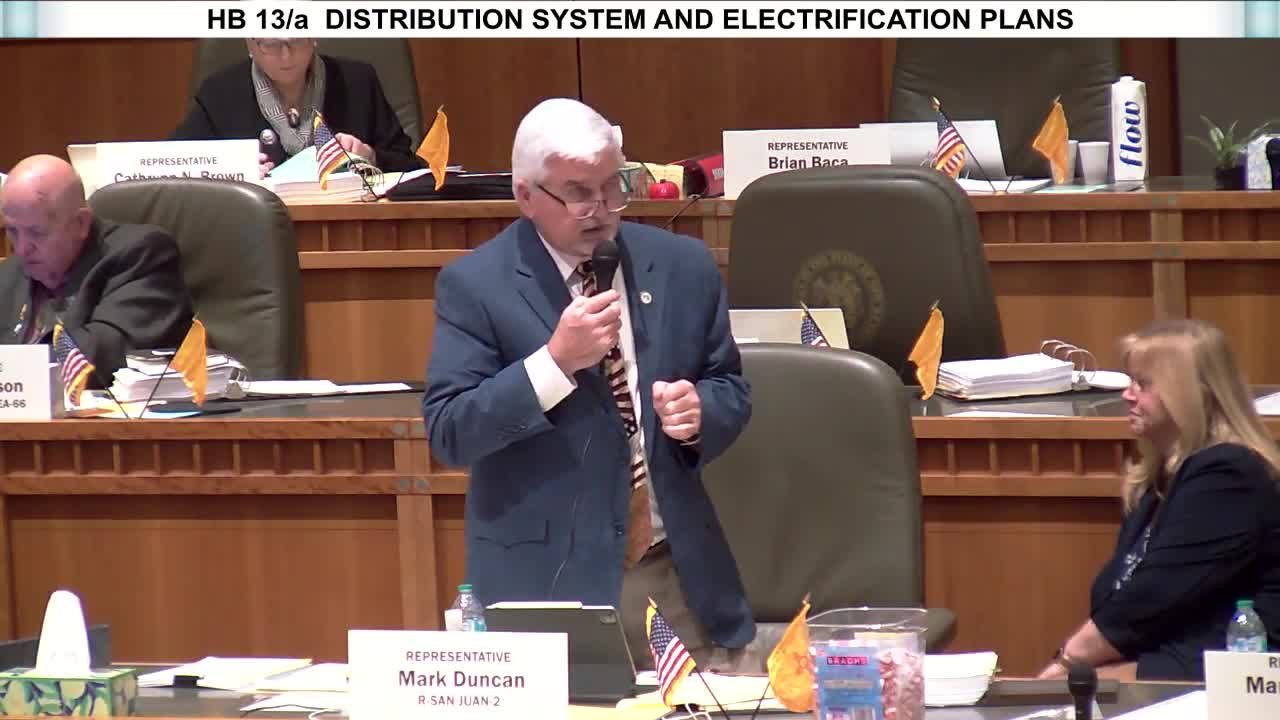House approves juvenile reform bill expanding supervised-release and local panels after amendment fight
Get AI-powered insights, summaries, and transcripts
Subscribe
Summary
The House passed the Judiciary Committee substitute for House Bill 255 after debate over adding voluntary manslaughter and other serious offenses to youthful-offender provisions. An offered floor amendment to broaden the youthful-offender enumerations was tabled; the substitute bill passed 34-24.
The House approved a package of changes to New Mexico’s juvenile delinquency statutes in a closely watched floor session, voting 34-24 to pass the House Judiciary Committee substitute for House Bill 255.
The substitute expands supervised release after commitment from three months to six months, tolls the supervised-release clock when a youth absconds, renames and refocuses a juvenile community grant program and creates local selection panels to assess services for adjudicated youth. During floor debate the chamber also considered an amendment that would have added a longer list of violent offenses (including certain sexual-contact offenses, armed robbery and other specified crimes) to the youthful-offender statute; that amendment was tabled on a roll call (32-27).
Sponsor and co-sponsors characterized the measure as an upstream intervention intended to give more youths access to services — education, substance-use and mental-health treatment, job training and housing support — so fewer young people progress to more serious crime. Representative (Bernalillo), sponsor of the substitute, said the bill is designed to "intervene in youth who are going down the wrong path before they get to the point where they're involved in a shooting or a carjacking." The bill also creates a pilot stipend program (up to $2,000 per month) for eligible formerly foster or delinquent young adults enrolled in post-secondary education or workforce training; supporters said the stipend helps remove barriers to education and work for people rejoining the community.
Opponents — including lawmakers who described themselves as victims or relatives of victims — said the substitute did not go far enough to hold violent juveniles accountable. Some members pressed to move a set of violent offenses into the more punitive "serious youthful offender" category, or otherwise to make adult prosecution more likely for the most violent crimes. Sponsor and others said the substitute preserves judicial discretion and an amenability hearing, where a judge assesses whether a young defendant is suitable for juvenile sanctions or should be treated as an adult.
Key provisions and floor actions: - Adds voluntary manslaughter to the youthful-offender list (included in the Judiciary Committee substitute), extends supervised release to six months and tolls the supervised-release period for absconders while they are missing. - Establishes local panels (including judicial, DA, public defender, law enforcement, school and community representatives) to screen adjudicated youth and recommend appropriate services and programs; creates a Juvenile Community Connections Grant Fund to support local programs. - Creates a pilot stipend (up to $2,000/month) for eligible formerly foster or delinquent young adults enrolled in postsecondary education, apprenticeships or workforce programs; funding appropriations were discussed elsewhere in the session.
Floor action: The sponsor offered the bill; a proposed floor amendment (House floor amendment number 1, #0.2317830.2) that would have broadened the list of offenses eligible for youthful-offender treatment was not adopted — the amendment was tabled (32-27). The substitute then passed final passage 34-24.
Why it matters: The substitute attempts to balance rehabilitation and accountability by expanding services and supervised-release time while keeping amenability hearings and judicial discretion in place. Supporters argue the changes will reduce recidivism; opponents said the protections are insufficient for victims of severe violent crimes.
What’s next: The bill passed the House and will go to the Senate. Implementation depends on rulemaking, local program capacity and appropriations for the grant and pilot stipend components.
